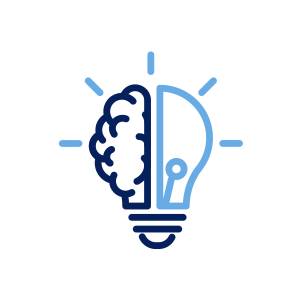What is Exercise Science?
Exercise Science is a multidisciplinary field that encompasses the subdisciplines of exercise physiology, kinesiology, exercise psychology and sports nutrition. Students in this major will learn how the human body works and responds to exercise stressors, the roles of exercise in nutrition in the prevention of chronic diseases, how to manipulate training variables to optimize athletic performance, how to evaluate physical fitness and how to design exercise programs to improve health and fitness. Students that graduate from this program work in a diverse range of careers including rehabilitation clinics, hospitals, commercial gyms, high school to professional sports teams or as an educator in K-12 schools.
Awareness

First Year
- Build an academic foundation through human anatomy and learning how the body works.
- Learn the importance of exercise and nutrition on health and well-being while also discovering some of the scientific principles that underpin those connections.
- Take KIN 100: Concepts of Health and Fitness, BMD 251 & BMD 252: Anatomy & Physiology I & II.
Middle Years
- Build upon the knowledge acquired in foundational courses and focus on some of the specific subdomains in Exercise Science.
- Develop more real-world application skills.
- Emphasize development of critical thinking and problem-solving skills.
- Take KIN 263: Introduction to Nutrition KIN 278: Sport, Performance, & Exercise Psychology KIN 380: Kinesiology KIN 476: Exercise Physiology
Last Year
- Prepare for certification and join professional organizations such as the American College of Sports Medicine (ACSM), National Strength and Conditioning Association (NSCA), International Society of Sports Nutrition (ISSN), and/or National Athletic Trainers' Association (NATA).
- Prepare for graduate school (optional).
- Take KIN 495: Internship.
- Explore careers with Career Development.
Exploration

First Year
- Join a student organization such as the Exercise Science Club, Pre-Physical Therapy Club, Pre-Occupational Therapy Club, and/or others to explore interests and build resume.
Middle Years
- Gain first-hand insight into potential career paths by shadowing professionals in roles that align with your interests.
- Volunteer as a participant in department research studies.
Last Year
- Research graduate programs of interest (optional).
- Attend Southeast Chapter of the American College of Sports Medicine Conference.
- Explore career opportunities and build professional connections by attending career fairs.
Preparation

First Year
- Login to Handshake and build profile strength to 75%+.
- Contact Career Development. Meet with a career consultant to discuss career goals and research fields of specialization in exercise science.
Middle Years
- Meet with a pre-health advisor if interested in applying to graduate school programs.
Last Year
- Prepare for certification exams and/or the GRE (Graduate Record Examinations).
- Volunteer with research studies or sports teams to develop problem solving, communication, and practical skills within the discipline.
- Contact Career Development for future planning assistance.
Research Opportunities within Exercise Science
Getting involved in research as an Exercise Science major can enhance your understanding of the human body, improve your critical thinking skills, and give you valuable experience for careers in physical therapy, athletic training, strength and conditioning, or graduate school.
Here are a few ways to dive into undergraduate research:
Connect with Faculty on Campus
Research is ongoing within the Exercise Science Department, and there are opportunities
for undergraduate students to get involved.
Summer Undergraduate Research Fellowships (SURF)
This program supports exceptional students from all academic majors who engage in scholarly research or creative projects under the guidance of dedicated faculty mentors. As a SURF Fellow, students will have the opportunity to gain hands-on experience and deepen their expertise in a chosen field; strengthen skills in scholarly communication and presentation; join a vibrant, collaborative community of student and faculty scholars; and contribute to the creation of new knowledge or innovative approaches within their discipline
Research Experiences for Undergraduates (REU)
Research Experience for Undergraduates (REU)
Talk to Your Professors
Start the conversation early! Let your professors know you're interested in gaining
research experience; they can connect you with labs, recommend upcoming projects,
or help you explore independent research ideas.
Why it matters:
Research experience sets you apart when applying for graduate programs in physical
therapy, occupational therapy, athletic training, and more. It also helps you build
meaningful connections with faculty, deepen your understanding of your field, and
explore areas you might want to specialize in.
What can I do with this major?
- Cardiac rehabilitation specialist
- Strength & conditioning coach
- Personal trainer
- K-12 teacher
- Wellness coach
- Fitness instructor
- Medical sales or corporate wellness coordinator
- Pursue graduate programs such as Doctorate of Physical Therapy, Doctorate of Occupational Therapy, Exercise Science Masters degree programs, and Masters in Athletic Training
What skills will I learn?
- Problem solving
- Critical thinking
- Data analysis
- Communication
- Leadership
![]()


